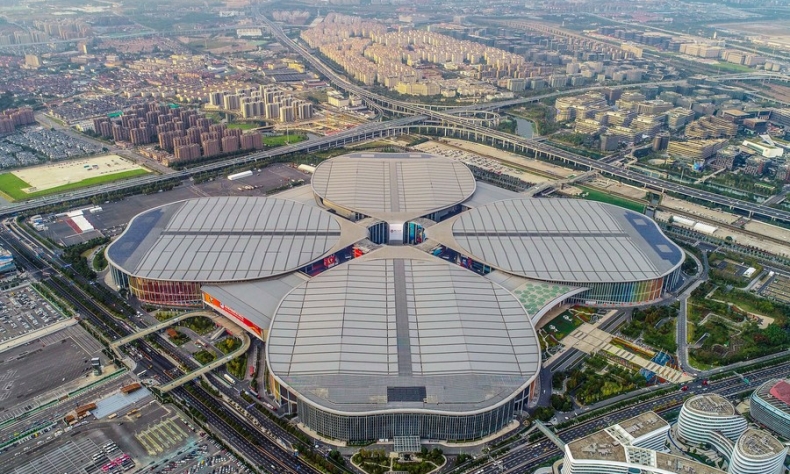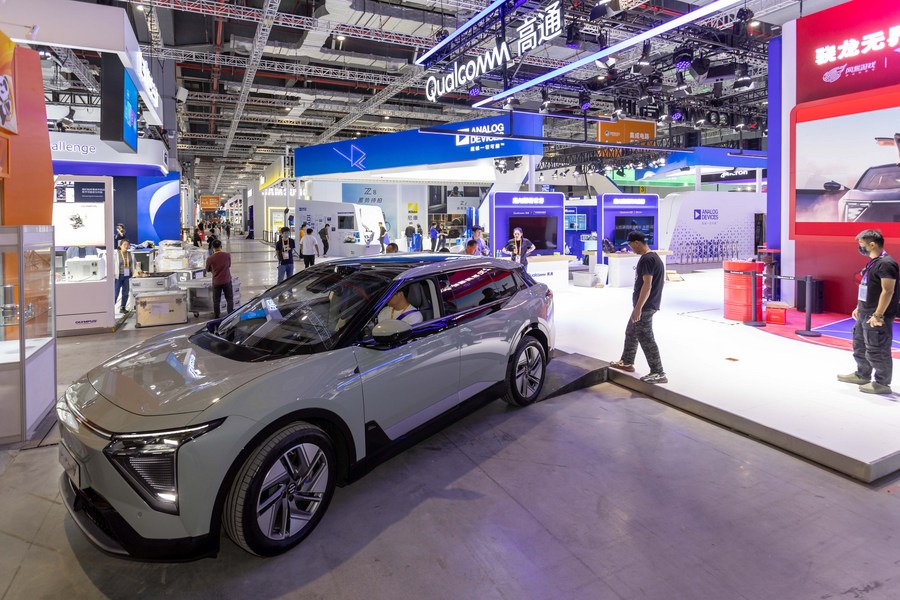CIIE: Promoting Global Trade and Collaboration

By hosting this significant event throughout the years, China showcases its willingness to embrace international trade, welcome foreign investment, and ultimately contribute to the overall advancement of the global economy.
The 6th China International Import Expo is set to take place in Shanghai from Nov. 5 to 10 this year. It stands as one of the largest global trade fairs hosted by China, with objectives including facilitating customs clearance, inspection and quarantine processes. Another aim is to provide long-term, one-stop transaction services both offline and online. Additionally, it seeks to enhance intellectual property rights protection so as to safeguard the rights and interests of merchants.
The CIIE initiative was announced at the Belt and Road Forum for International Cooperation in May 2017. Since its formal debut in 2018, the expo has grown in scale, coverage and influence every year. It has now become a prominent platform for businesses worldwide to showcase their products and services, explore new markets and establish valuable partnerships.
The CIIE caters to a wide range of industries, including food and agricultural products, automobiles, intelligent and information technology, consumer goods, medical devices and healthcare products, and trade in services. The industries involved will take this precious opportunity to show their latest technologies, innovative products and high-quality goods to a broader audience through their respective exhibits. Additionally, numerous industry leaders, entrepreneurs, government officials and trade promotion agencies will attend the expo to extend their networks and pitch their ideas.
This year’s expo is probably the largest in history, anticipated to draw attendees from 154 countries, regions and international organizations, with a total of over 3,400 exhibitors and 394,000 professional visitors. Among them, over 1,500 enterprises hail from Belt and Road partner countries, especially developing ones. By leveraging the global reach associated with the expo, individuals can view it as a promising start for cultivating enduring relationships that can drive economic growth and mutual benefits, and also fostering shared support and trust through varied trading activities.

The emergence of the CIIE reflects China’s robust ambition and determination to support trade liberalization and widen its market access to the world. It also marks China’s shift towards a consumption-driven and diversified economy, especially as it now ranks as the world’s second largest economy, as well as the second largest importer and consumer market. Within the CIIE, strong emphasis is placed on promoting multilateral dialogues and common development in the modern era, given the prevailing discourses of anti-globalization, trade protectionism, economic nationalism and populism worldwide. Simultaneously, departments at various levels of government have dedicated substantial time and effort in planning and coordinating the expo annually to ensure the event can have the most far-reaching and sustainable effects on boosting the global economy.
The remarkable success of the China International Import Expo stands as a testament to China’s growing importance as a global economic powerhouse, coupled with its unwavering commitment to openness and inclusivity, all under the banner of high-quality development and high-level opening-up.
By hosting this significant event throughout the years, China showcases its willingness to embrace international trade, welcome foreign investment, and ultimately contribute to the overall advancement of the global economy. In view of the global trade recovery from the impacts of the COVID-19 pandemic, it is hoped that encouraging more extensive and recurrent trading activities worldwide can further contribute to the common prosperity of humankind with a shared future in the years ahead. At the same time, the success of the CIIE might motivate other countries to come up with similar initiatives that promote open trade and ongoing collaboration in an interconnected and interdependent world.
Mathew Wong is an associate professor at the Department of Applied Social Sciences at the Hong Kong Polytechnic University.
 Facebook
Facebook
 Twitter
Twitter
 Linkedin
Linkedin
 Google +
Google +










